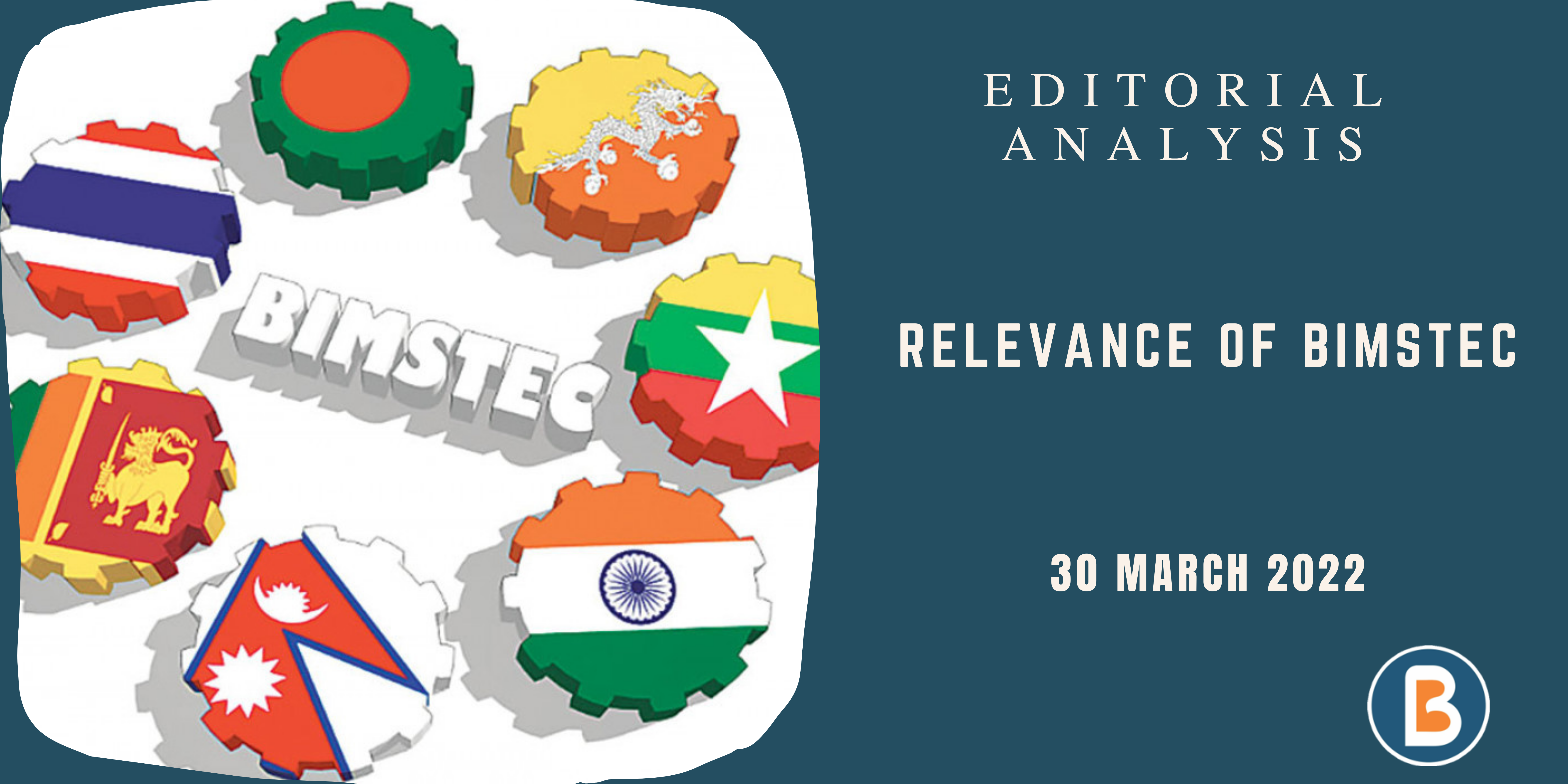Relevance of BIMSTEC
Context:
• Sri Lanka is hosting a virtual summit of BIMSTEC which will be attended by the leaders of the Bay of Bengal Initiative for Multi-Sectoral Technical and Economic Cooperation (BIMSTEC).
About:
• Bay of Bengal Initiative for Multi-Sectoral Technical and Economic Cooperation (BIMSTEC) was founded in 1997 which has set a common set of principles for regional cooperation.
• This sub regional grouping has the following members – India, Bangladesh, Sri Lanka, Myanmar, Thailand and the land-locked states of Nepal and Bhutan
• The grouping has identified different sectors for regional cooperation, they include – trade and investment, transport and communication, energy, tourism, technology, fisheries, agriculture, public health, poverty alleviation, counter terrorism and transnational crime, environment and disaster management, people-to-people contact, cultural cooperation and climate change.
Threats to maritime ecosystem:
• This region including the littoral states of India, Bangladesh, Sri Lanka, Myanmar & Thailand is rich in bio diversity.
• It has huge stretches of mangrove forests, fragile estuaries and coral reefs.
• It also consists of sea grass meadows and mass nesting sites of sea turtles thereby giving shelter to huge biodiversity.
• The annual loss of mangrove areas is estimated at 0.4% to 1.7% and coral reefs at 0.7%. It is predicted that the sea level will increase 0.5 meters in the next 50 years. Moreover, there have been 13 cyclonic storms in the last five years.
• The Bay is an important source of natural resources for a coastal population of approximately 185 million people.
• The fishermen population alone is estimated to be around 3.7 million, with an annual fish catch of around six million tons, constituting 7% of the world’s catch and valued at around U.S.$4 billion.
Necessity of Cooperation:
• The Bay of Bengal’s blue economy potential is enormous. Developing maritime trade, shipping, aquaculture, and tourism are all viable options.
• To take advantage of these prospects, governments, scientists, and other specialists must work together in a coordinated and purposeful manner.
• The BIMSTEC Summit must establish a new regional platform for coordinated activities on transboundary marine challenges.
• This mechanism must take immediate action to improve fisheries management, promote sustainable fishing practices, create protected areas, and construct frameworks to prevent and manage pollution, particularly industrial and agricultural waste and oil spills.
• More scientific research on the effects of climate change in general, and on fisheries in particular, is also required.
Source: THE HINDU




